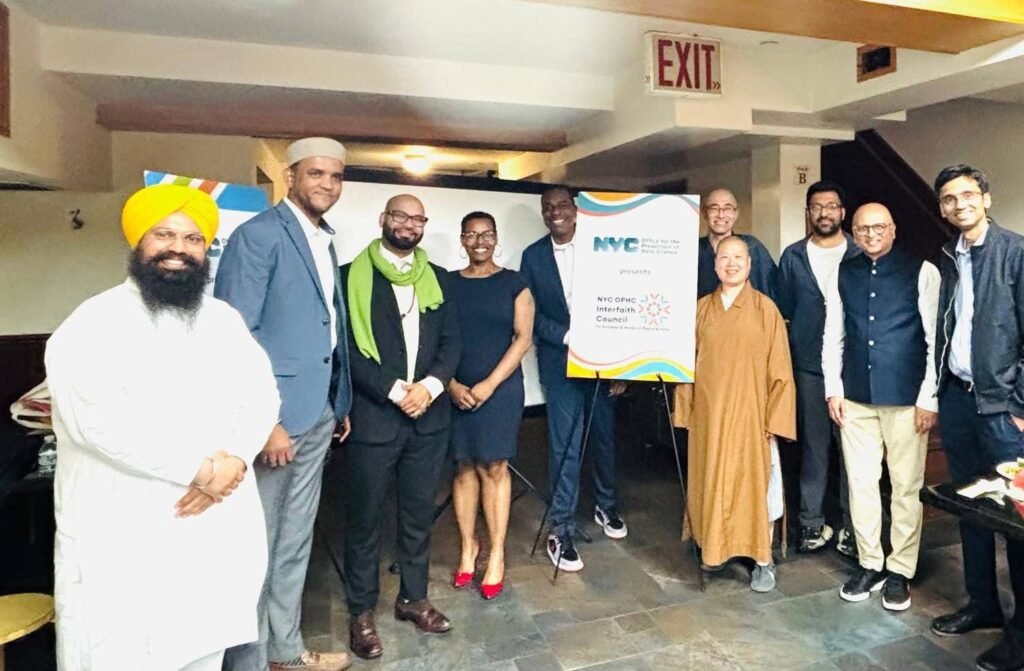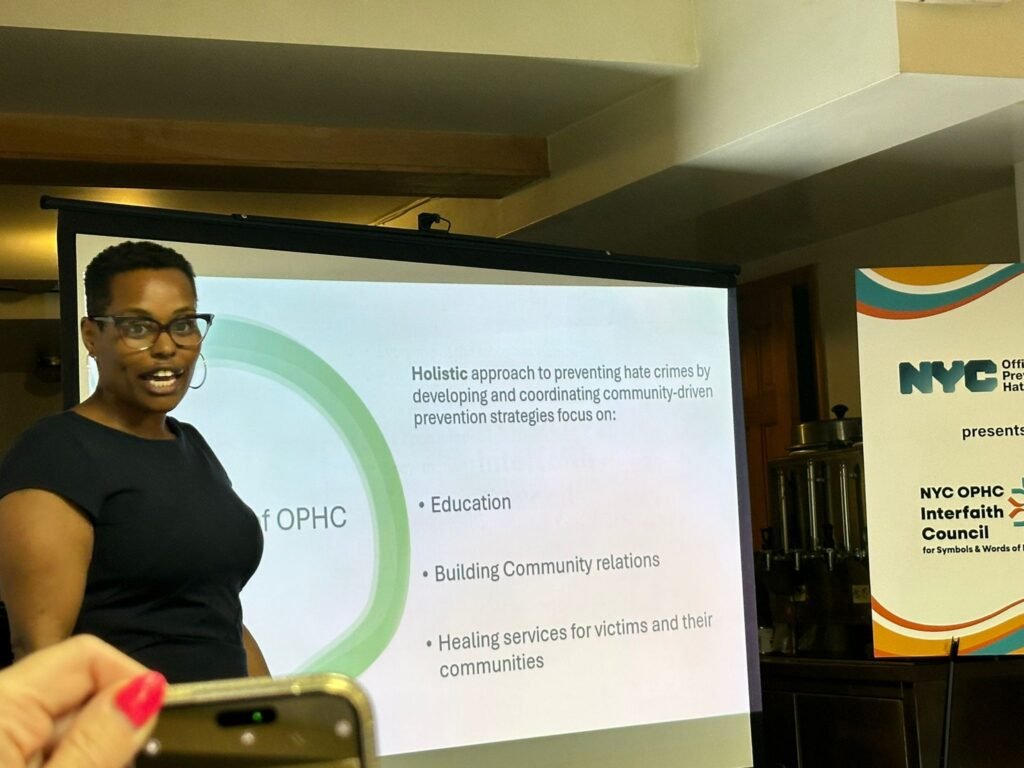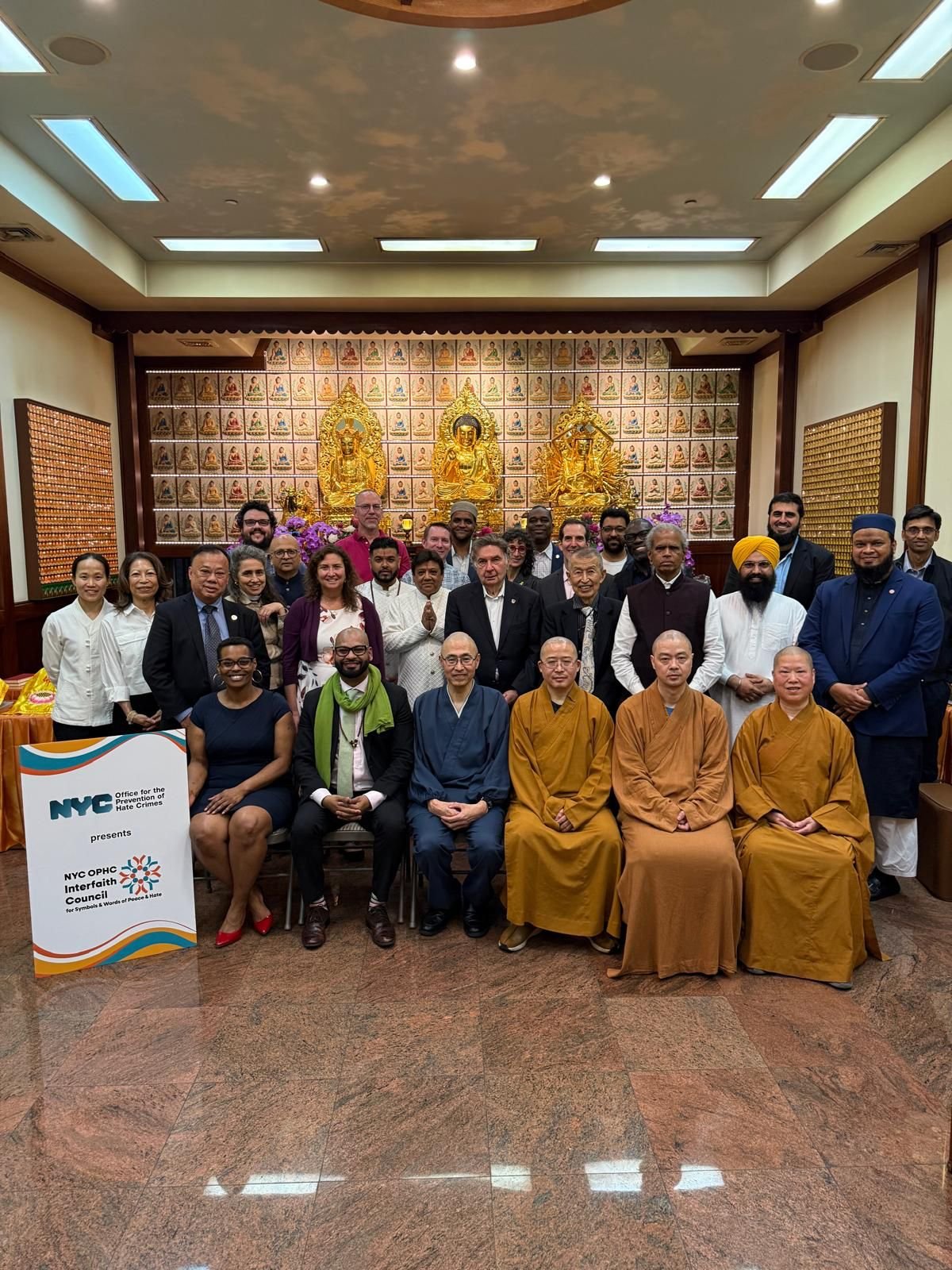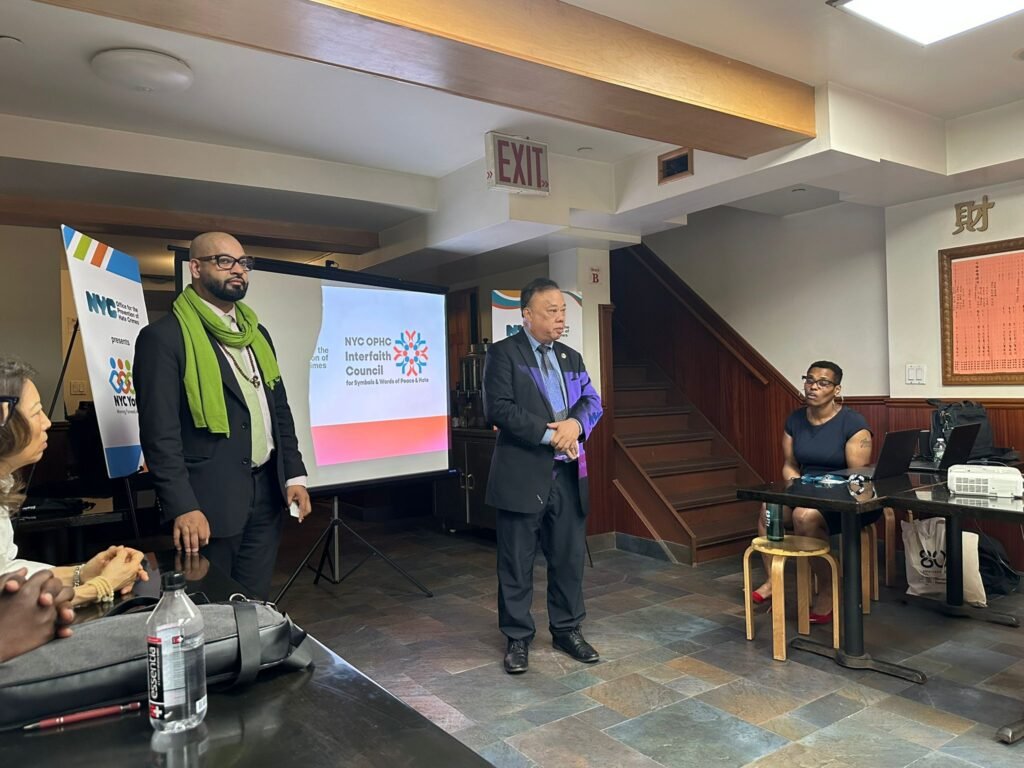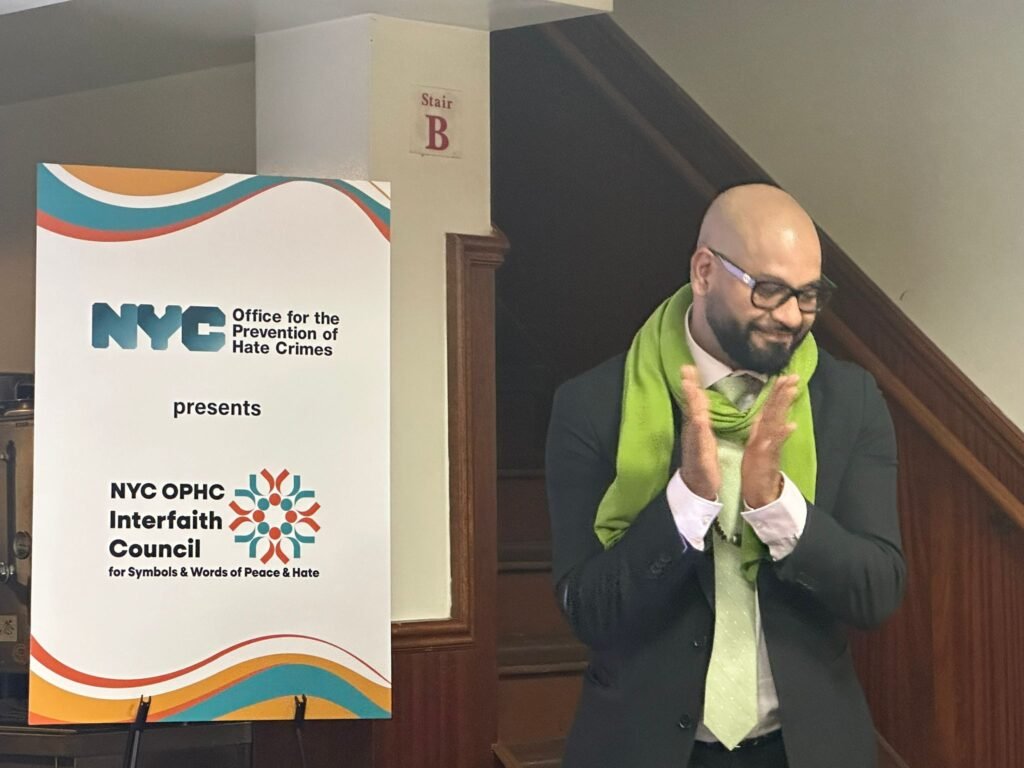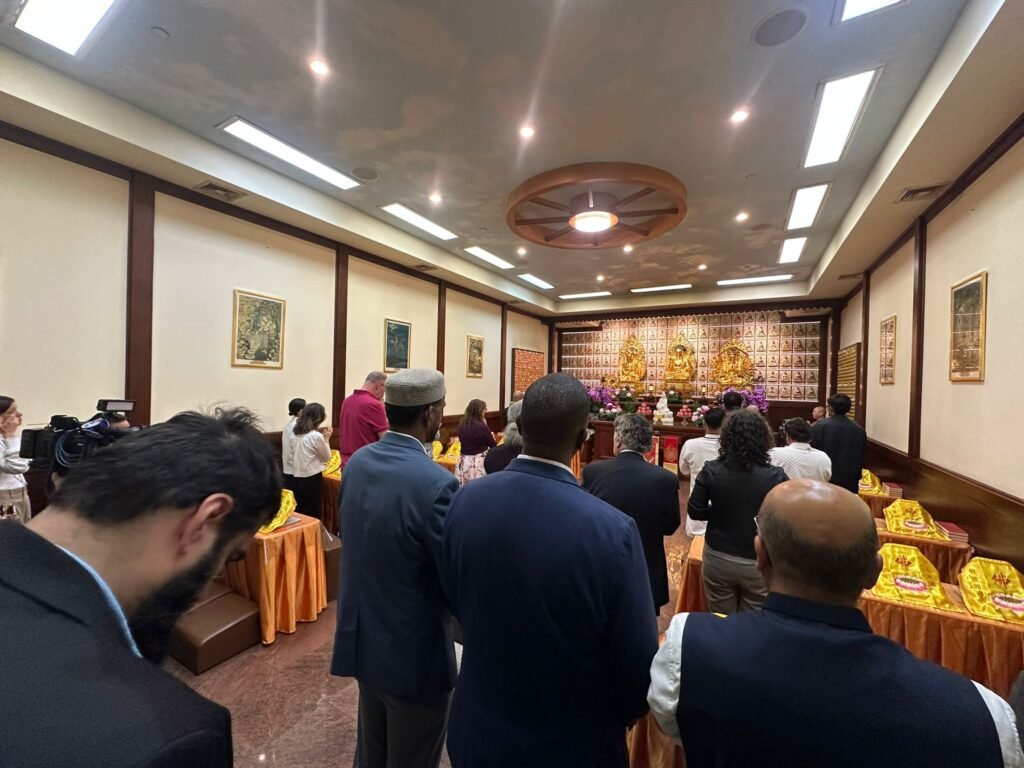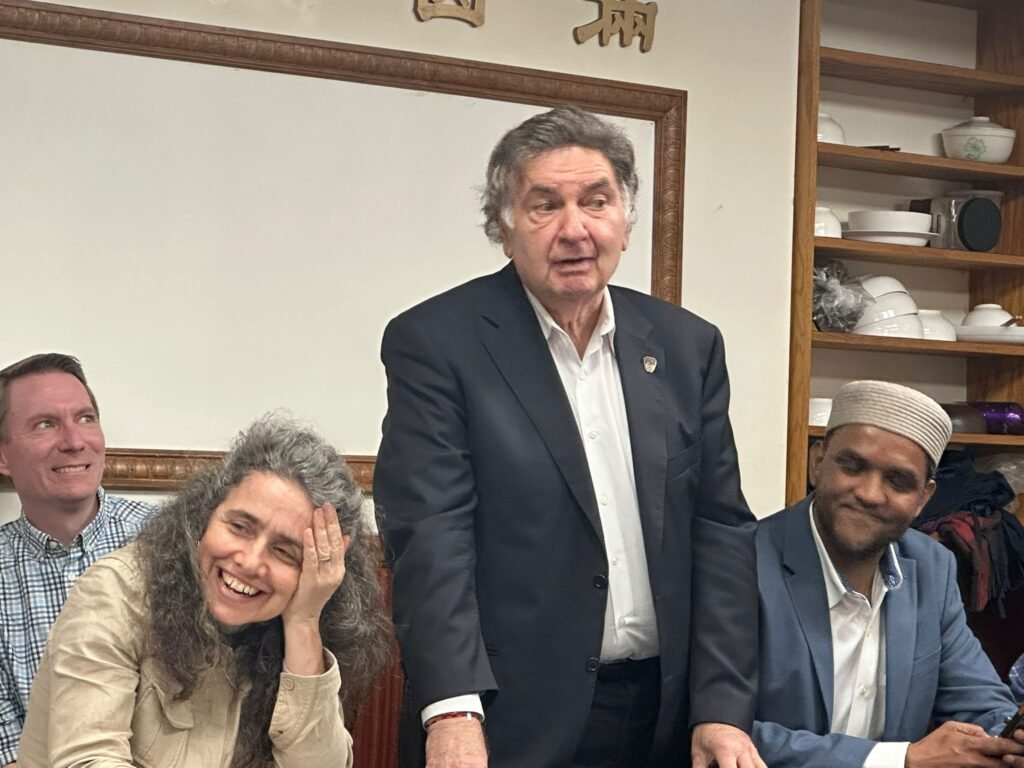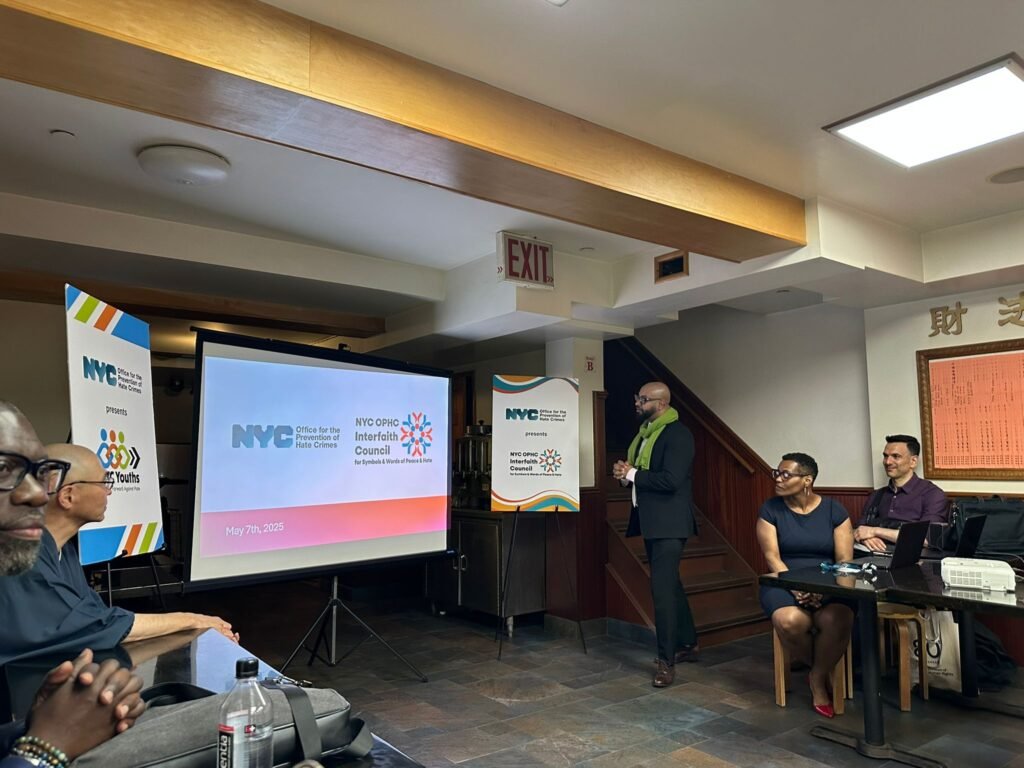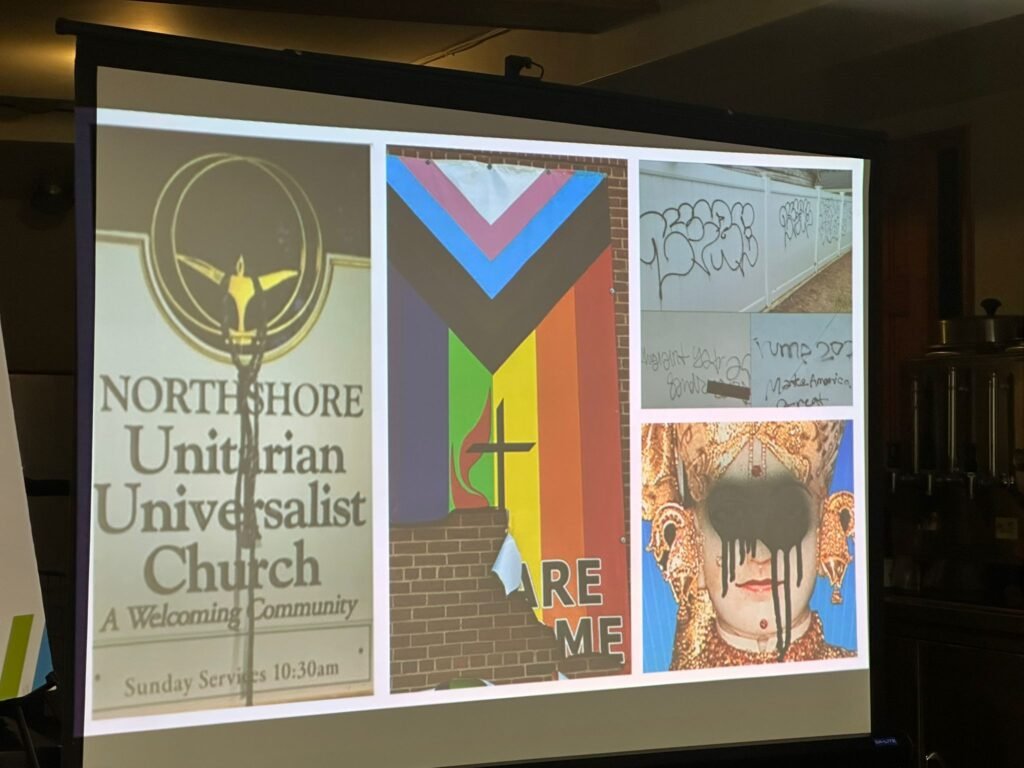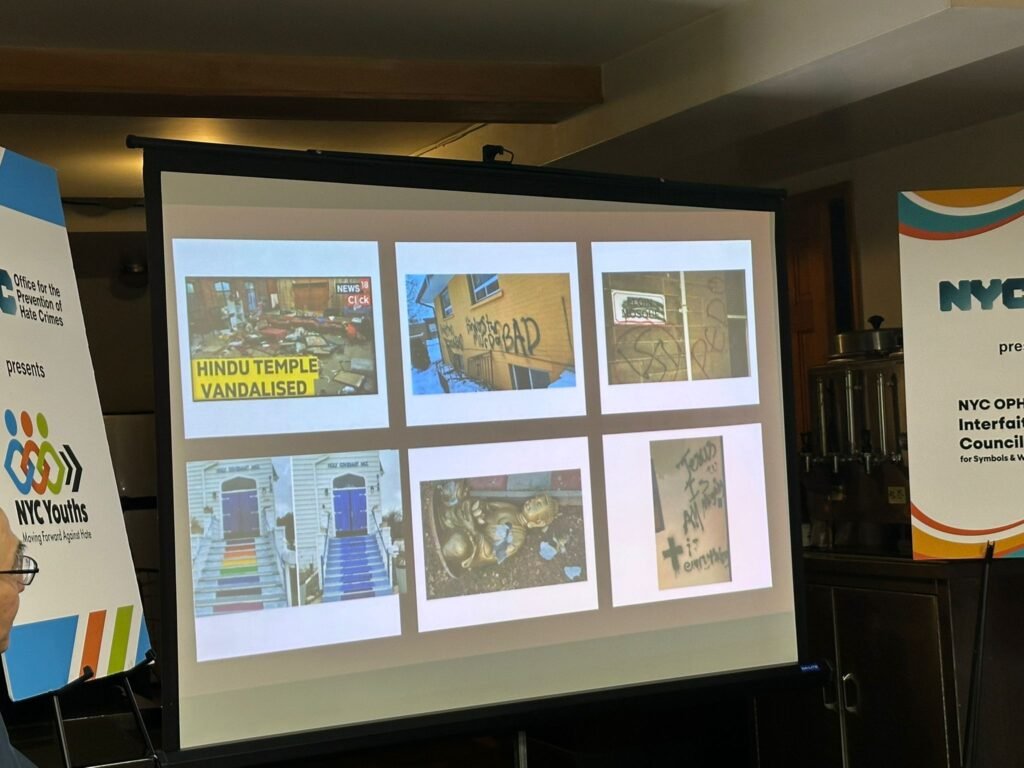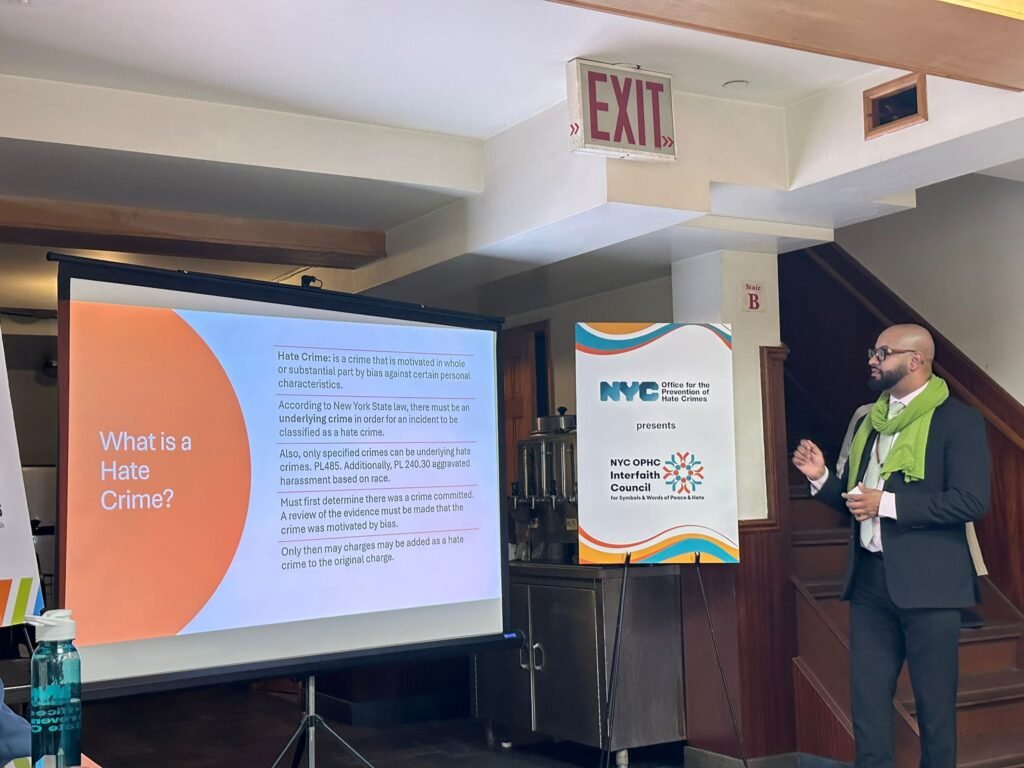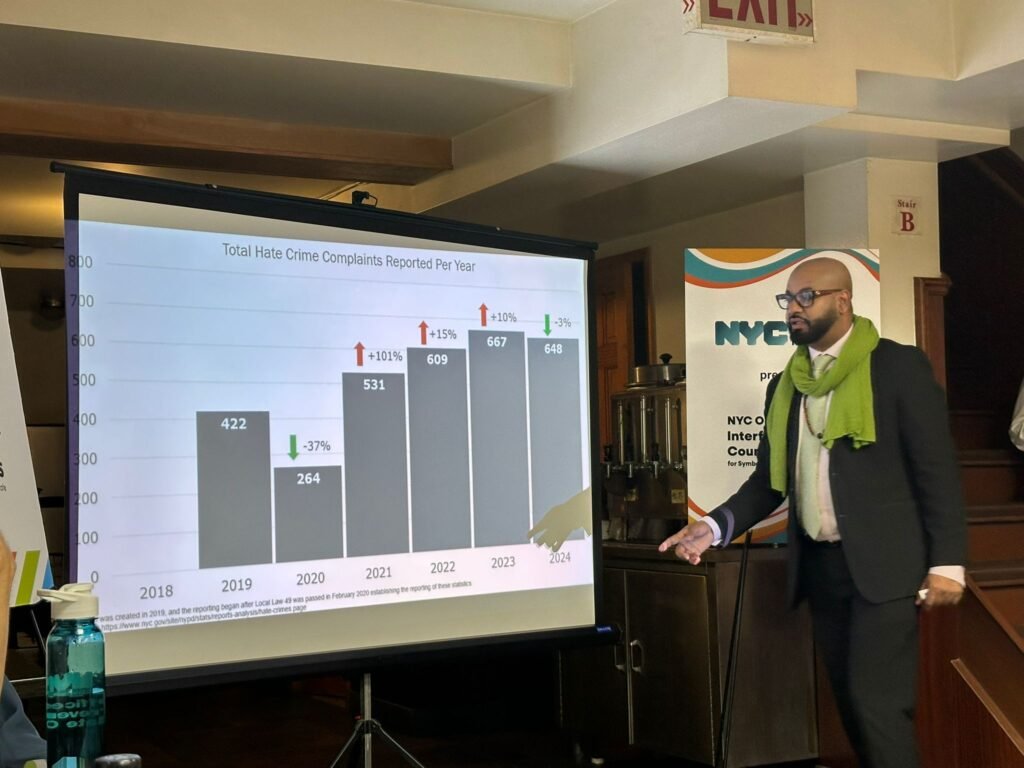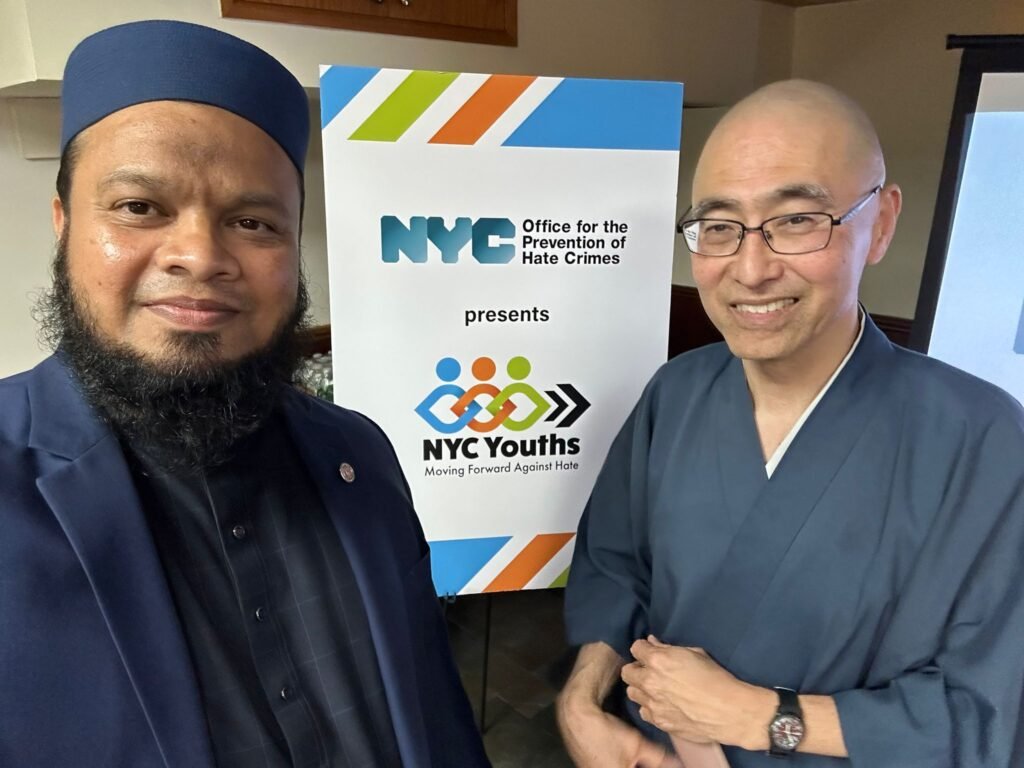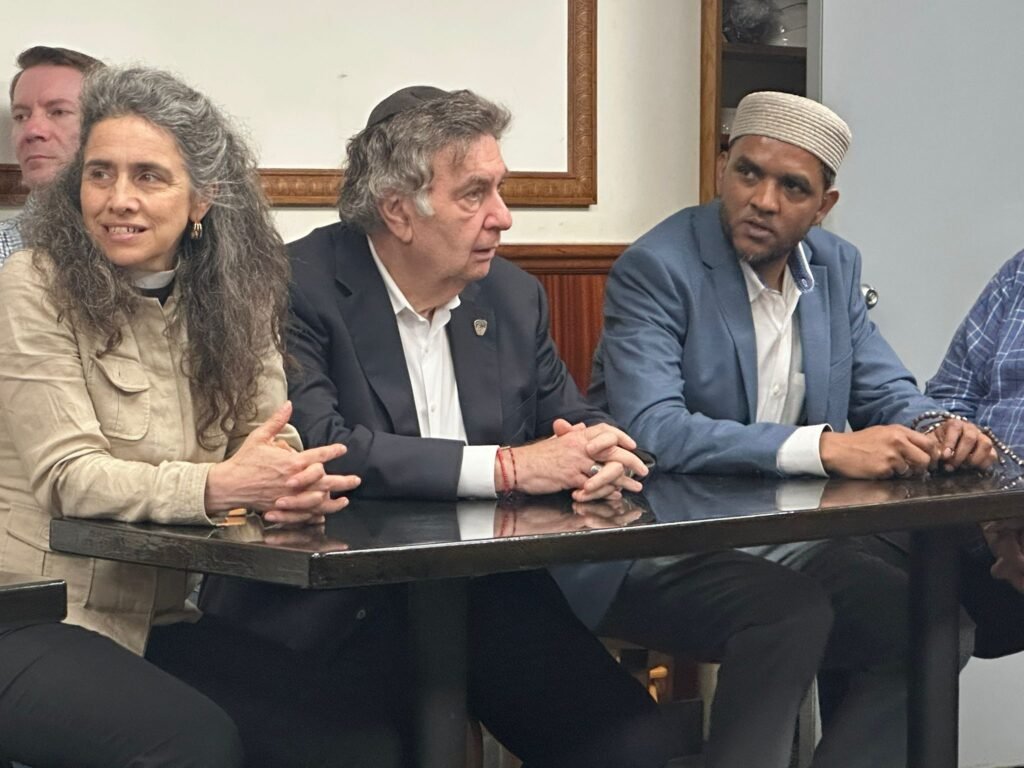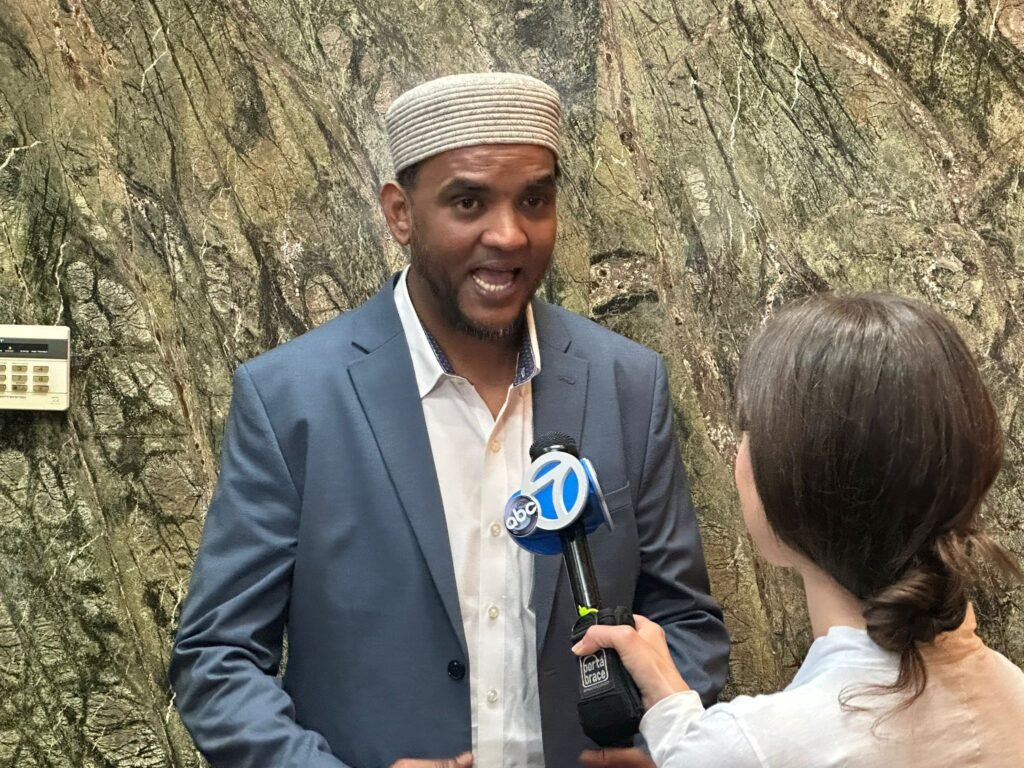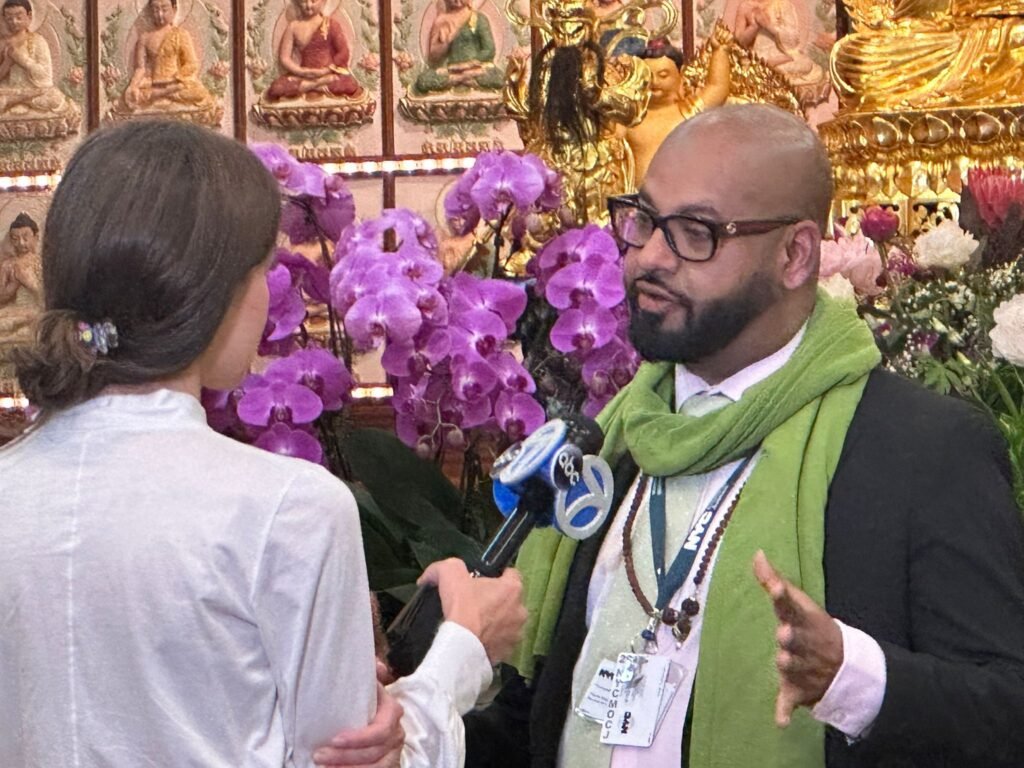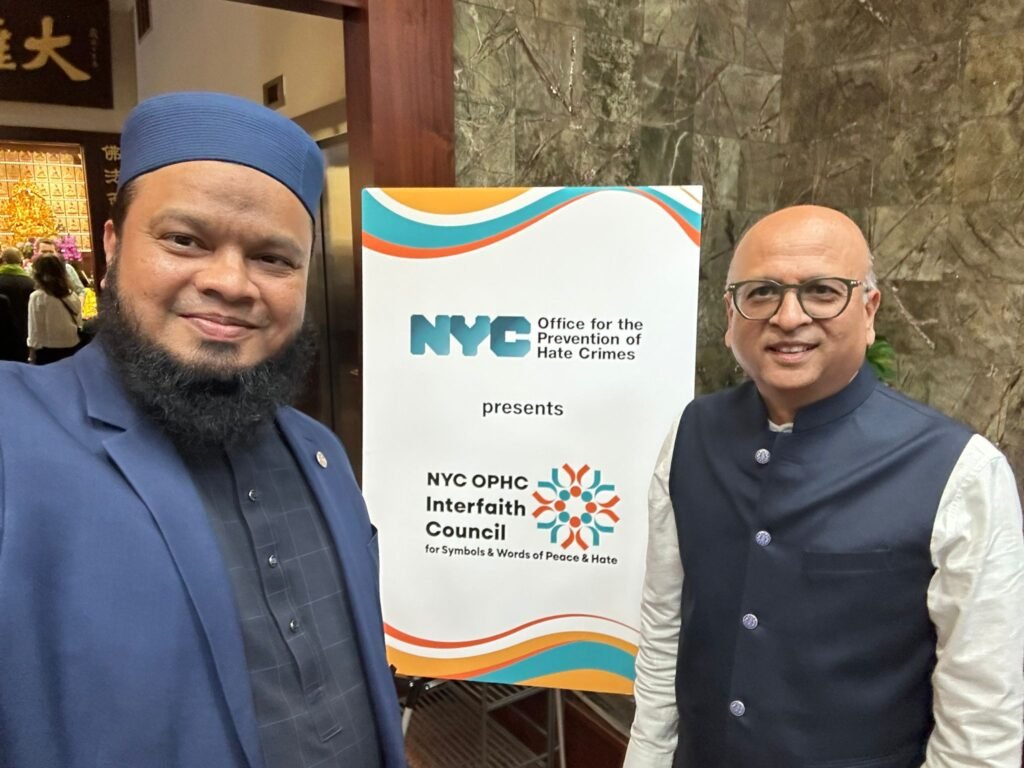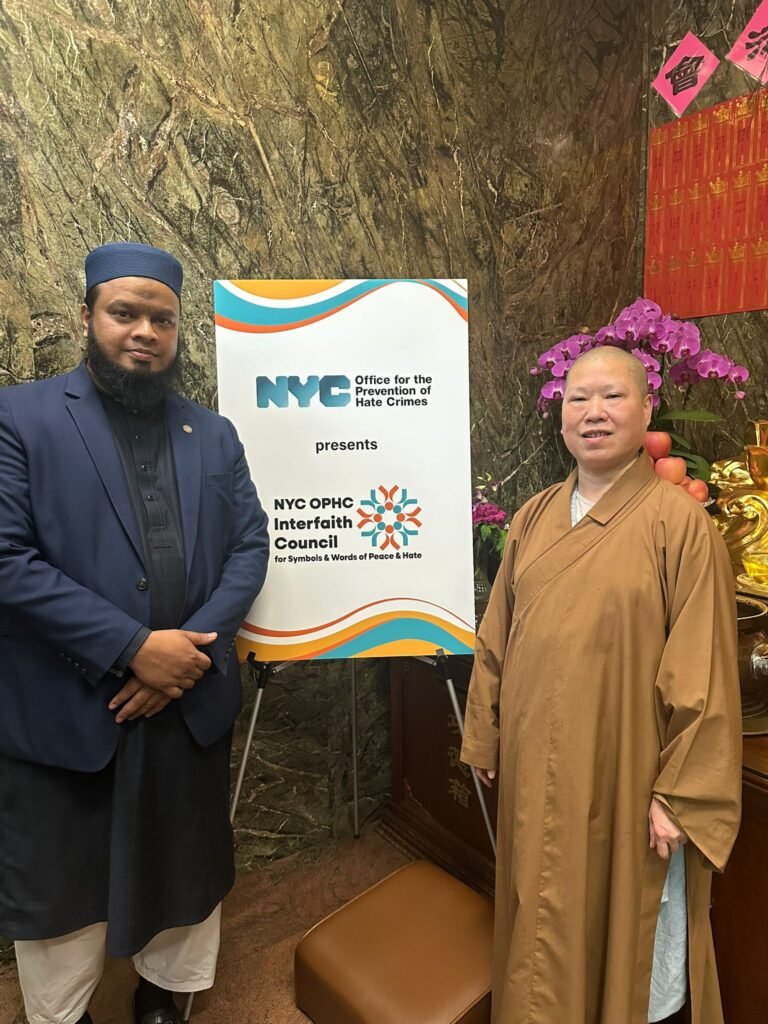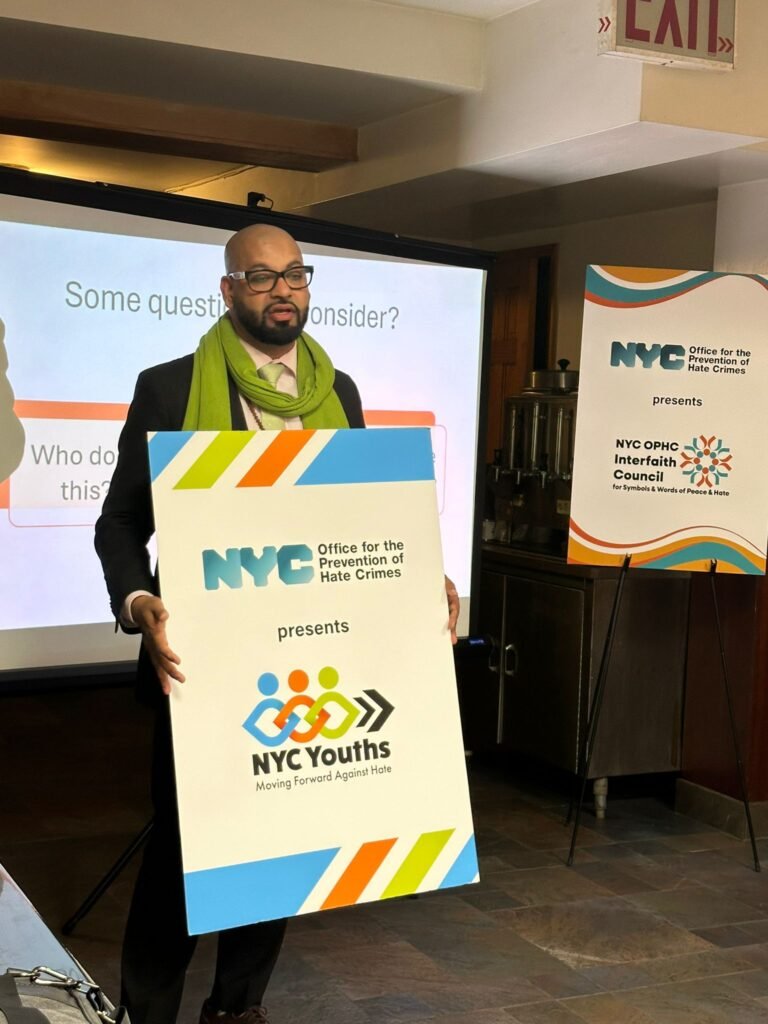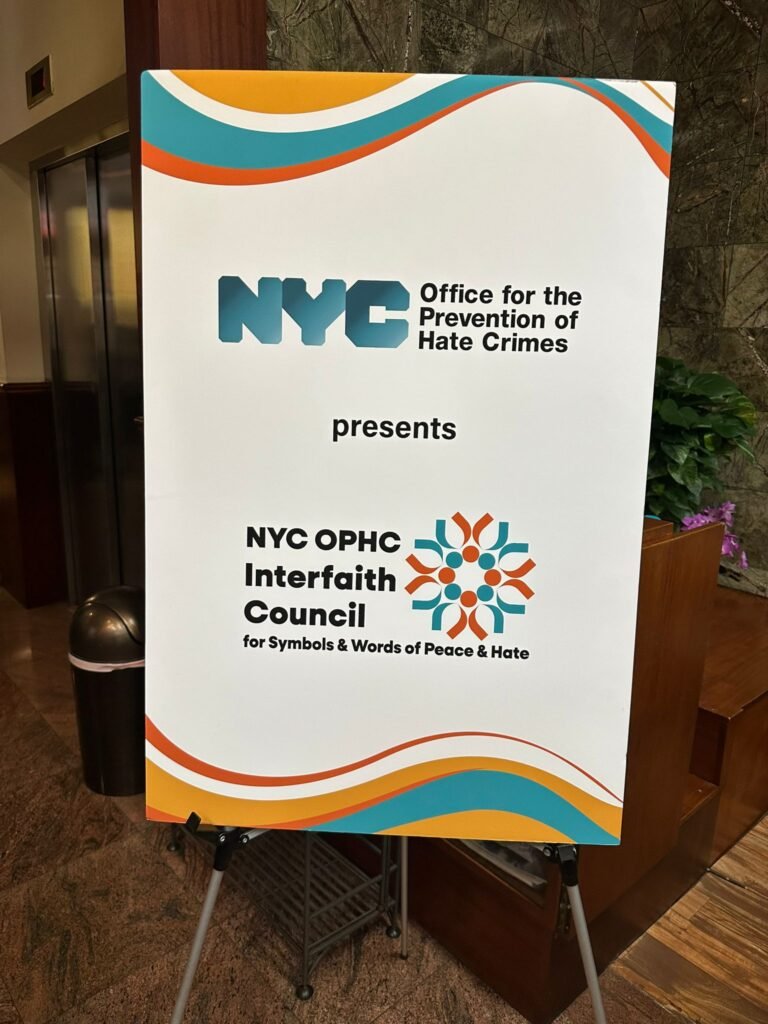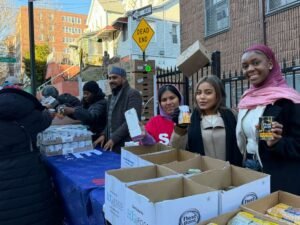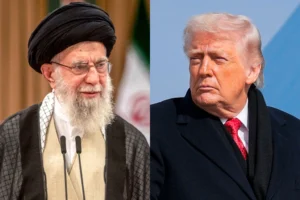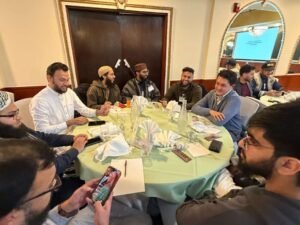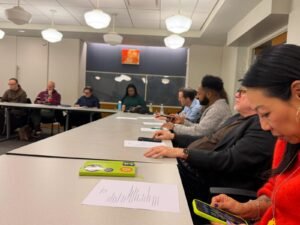Sakin Auhin:
In a meaningful and timely gathering, the NYC Office for the Prevention of Hate Crimes (OPHC) hosted its inaugural Interfaith Council for Symbols and Words of Peace and Hate (OPHC-IFC) at the Grace Gratitude Temple, 48 East Broadway, New York, NY 10002. The event brought together a diverse group of faith and community leaders to engage in vital discussions on how language and imagery shape both conflict and community.
The council’s creation marks a significant step in the city’s broader mission to address the roots of hate through education, dialogue, and collaboration. Attendees shared perspectives on how certain words and symbols, whether historical or contemporary, can serve as powerful tools—either deepening societal divisions or cultivating peace and solidarity.
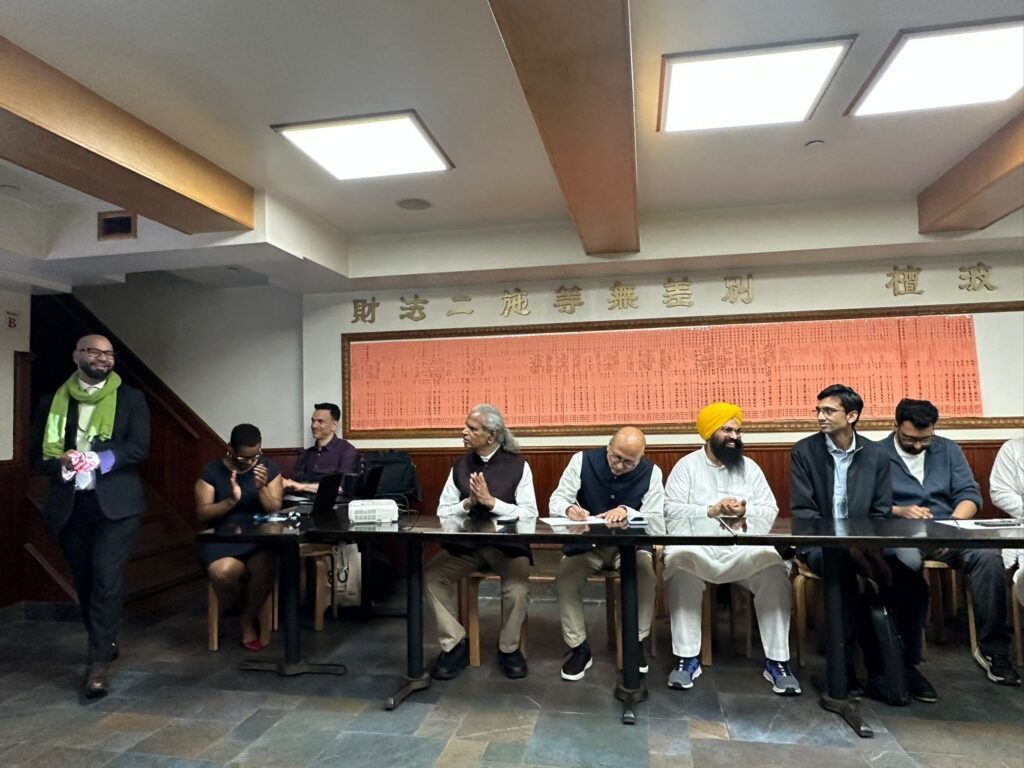
The OPHC-IFC initiative aims to establish safe spaces where leaders from different traditions can speak openly about the linguistic and symbolic triggers that impact their communities. It also seeks to foster conversations about how these same elements, when reframed, can serve as sources of hope, unity, and reconciliation.
Though informal in structure, the meeting reflected a deep intentionality. Participants discussed the historical context of various symbols and the ways in which they have been interpreted or misused. The tone was reflective and purposeful, with a shared understanding that the subtleties of language and symbolism often carry deep emotional and cultural weight. Several attendees emphasized the urgent need for greater awareness about how quickly seemingly neutral expressions can escalate tensions or reinforce bias.
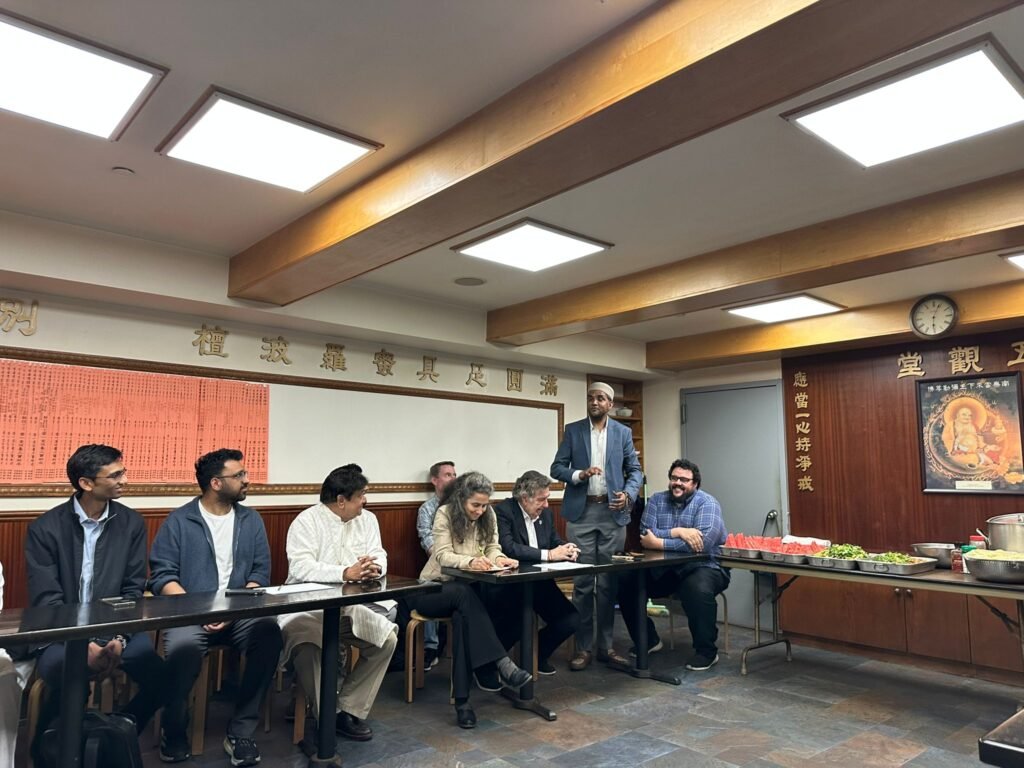
The event was part of Project Open Doors, an OPHC initiative committed to preventing hate crimes by building bridges across cultural and spiritual lines. This new council adds an interfaith dimension to the project’s mission, recognizing the unique influence that faith leaders have in shaping narratives and guiding public sentiment.
Many who attended spoke of their own communities’ experiences with hate incidents, and the importance of using words to heal rather than harm. A common sentiment expressed during the evening was that while symbols and language have the capacity to divide, they also have the power to inspire empathy, affirm identity, and bring people together in meaningful ways.
No formal resolutions were passed, but the gathering served as a launching point for future collaboration. Organizers emphasized that the council will continue meeting to build on this initial momentum, expanding its scope and reach across all boroughs and faith traditions.
Following the event, the Office for the Prevention of Hate Crimes shared a message online: “Symbols and words should never be weaponized to fuel hate. It’s through embracing and tapping into New York’s incredible diversity that we can truly advance this vital mission.”
The OPHC-IFC stands as a promising model for how communities can confront rising hate not through silence or isolation, but by convening, conversing, and choosing peace—one word, one symbol, and one step at a time.
For more blogs, visit nyn.press
